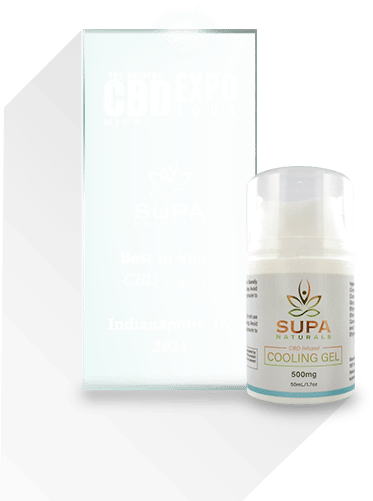Hemp Oil vs CBD Oil: Differences and Benefits
Though more efforts are being directed towards understanding the true potential of hemp and CBD oil, users are still confused about the difference between the two products. To try and clear some of the confusion, this post will take a closer look at the two, highlighting what they are, their differences, and their respective benefits.
What Is Hemp Oil?
Hemp oil is a cold-pressed extract of the hemp plant, retrieved from the plant’s stalk. Hemp oil contains a blend of phytocannabinoids and other compounds, including flavonoids and terpenes.
Though some companies might use the terms interchangeably, it is essential not to confuse hemp oil with hemp seed oil, which is another hemp extract derived from hemp seeds.
The main difference between the two products is that hemp seed oil has little to no CBD content. Instead, hemp seed oil is high in omega-3 and omega-6 fatty acids and antioxidants and is an excellent source of nutritional value.
Hemp seed oil is also known for its skincare benefits, and many people use it as a powerful moisturizer. In addition, hemp seed oil has a zero comedogenic rating, allowing it to soften the skin without contributing to oily skin or clogging the pores.
How to Take Hemp Oil
You can consume hemp oil orally or sublingually. Sublingual consumption involves placing the hemp oil under your tongue. This method enables you to experience the effects of the product more quickly.
Though it will take longer to feel its effects, the benefit of taking hemp oil capsules orally is that it allows for more consistency and controlled doses over time.
You also have the option to apply topical hemp oils directly to the areas you feel inflammation or pain.
The appropriate dosage for your needs will depend on factors like:
- Your body weight
- The product’s concentration
- Your reason for using the product
Since every person has a unique biochemical and genetic makeup, your response to certain doses of hemp oil will differ from other users’ responses. Studies have shown that most people can tolerate hemp oil doses as high as 1,500 mg per day. However, it is crucial to find the dose that works best for you.
Potential Risks and Side Effects

While hemp oil is generally safe, you could still experience certain side effects like fatigue, sleepiness, and decreased appetite.
We should also mention that hemp is a strong bio-accumulator. This means that it absorbs toxins and pollutants from the soil in which it thrives. Since it takes significant amounts of hemp stalks to produce the extract, you could be exposed to an increased risk of contamination.
As a result, you must exercise caution when choosing a hemp oil product. We shall touch on how you can do this as an informed consumer later in the article.
What Is CBD Oil?
CBD oil is another plant extract that mainly contains CBD. While the oil can be extracted from hemp or marijuana plants, CBD oil is made from legal hemp plants to comply with the law.
This is because CBD oil is considered legal if its THC content does not exceed 0.3%. Hemp plants contain the same THC level. Also, while some marijuana farmers selectively breed their plants to increase the levels of THC and other compounds, hemp farmers do not.
Due to its limited THC content, CBD oil does not cause any psychoactive effects. This means that it does not alter the user’s state of mind. Instead, people use it because of its several potential health and therapeutic benefits.
How Is CBD Oil Extracted?
While there are several ways to extract CBD oil, the processes generally involve using a solvent to extract the oil from the plant’s stalk, leaves, and flowers. The following are some of the more common commercial extraction methods.
CO2 Extraction
This extraction method involves exposing the hemp plant to CO2 at high pressures and low temperatures. This process isolates and preserves the cannabinoids in the oil. Though effective, the extraction time is slow, and the production costs are high. This means that the products extracted using this method can often be costly.
Olive Oil Extraction
In this method, manufacturers heat the plant materials with olive oil to extract the cannabinoids. The process has many benefits because olive oil is cost-effective, safe, and adds many of its own health benefits, such as enhancing immunity.
Ethanol Extraction
As the name suggests, the process involves the use of ethanol to extract the oil. While small amounts of ethanol are safe and nontoxic, the process tends to destroy the plant’s waxes, which also have certain health benefits.
Hexane or Butane Extraction
While butane and hexane do an excellent job extracting cannabinoids from the hemp plant, the extraction process leaves behind some solvent residue that can potentially harm your lungs.
How CBD Works

Your body has two types of receptors: CB1 and CB2 receptors. CB1 receptors are present throughout your body, especially in the brain. They are responsible for coordinating movement, emotion, pain, thinking, memories, mood, appetite, and other functions.
On the other hand, CB2 receptors are more commonly found in your immune system. They primarily affect pain and inflammation.
All cannabinoids work by interacting with your body’s cannabinoid receptors that form part of your endocannabinoid system. However, while THC usually attaches to CB1 receptors, CBD oil stimulates the receptors. This causes your body to produce its own cannabinoids, which are known as endocannabinoids.
How to Use CBD Oil
There are several ways to use CBD oil. Some of them include:
- Mixing it into your food or drink
- Swallowing capsules
- Taking it with a dropper or pipette
- Massaging it into your skin
- Spraying it under your tongue
Similar to taking hemp oil, the method you choose will affect how quickly you will feel the product’s effects. Knowing the correct dose will also depend on the same factors.
Potential Risks and Side Effects
Similar to hemp oil, CBD oil has potential side effects and risks. For starters, CBD oil can interact with your current medications or supplements. Therefore, we recommend speaking to your doctor before using CBD oil.
Also, CBD oil might not be suitable for women who are pregnant or breastfeeding. On top of that, users could experience certain side effects like:
- Irritability, irritation, and mood changes
- Liver damage
- Fertility reduction in men
- Loss of appetite and gastrointestinal problems
- Changes in alertness
Hemp Oil vs. CBD Oil: What Are Their Differences and Benefits

There are various ways to differentiate between hemp and CBD oil. For starters, while hemp oil is made from the plant’s stalk, CBD oil is mainly derived from the plant’s flowers and leaves. This is because the leaves and flowers have the most cannabidiol content.
On top of that, the FDA does not view CBD and hemp oil the same. While the FDA has approved the sale and purchase of hemp oil almost everywhere, CBD oils are only legal if they contain a THC content of less than 0.3%.
Another difference between the two is that, while research is still in its infancy, CBD oil has been shown to have a lot more potential benefits than hemp oil.
What Are the Benefits of Hemp Oil?
While it is still early days, hemp oil might have a few promising benefits. For instance, according to research, hemp oil can impact the activity in the brain’s limbic system, which is responsible for your fight or flight response. One study found that the product significantly calmed public speaking-induced stress.
What Are the Benefits of CBD Oil?
Early research points towards several promising health benefits of CBD. The following are some of the ways CBD oil might benefit a user’s health.
Natural Pain Relief
Conventional drugs can help relieve pain, inflammation, and stiffness, however, some users might be prone to developing addictions or experiencing severe side effects.
Fortunately, there is growing evidence that CBD can provide a natural solution to those seeking treatment for inflammation and chronic pain. For instance, one study showed that when CBD is used as an ointment, it can significantly reduce scarring and inflammatory skin disease.
Epilepsy
This is perhaps the most well-known health benefit of CBD. Today, many people are using Epidiolex, a purified form of CBD, to treat epilepsy. The FDA has approved the drug to treat Dravet and Lennox-Gastaut syndromes.
These conditions are rare forms of epilepsy that involve seizures that are difficult to control with other forms of medications. Thanks to CBD, patients can prevent seizures without experiencing the sedating side effects of certain synthetic drugs.
Neurological Symptoms
Certain research suggests that CBD can also treat complications resulting from epilepsy like neuronal injury, neurodegeneration, and psychiatric diseases. For instance, there was a study that showed CBD could provide safe and effective solutions for people with schizophrenia.
There have also been several studies looking into the effect CBD has on Alzheimer’s disease. For example, one rodent study showed that CBD could help people retain their ability to recognize familiar faces. However, more research is still being carried out.
Anxiety Disorders

While THC can sometimes amplify or trigger feelings of paranoia and anxiousness, CBD can help patients reduce anxiety. There is a publication that suggests that CBD could help reduce anxiety-related behaviors in patients with:
- Panic disorders
- PTSD
- Obsessive-compulsive disorders
- Social anxiety disorder
- General anxiety disorder
Skin Diseases
Acne is a skin condition caused, in part, by inflamed and overworked sebaceous glands in your body. According to research, CBD has an anti-inflammatory effect that can also reduce the production of sebum, preventing the development of acne.
On top of that, applying CBD could also reduce inflammation in other inflammatory skin diseases like psoriasis.
Type 1 Diabetes
Type 1 diabetes is caused by your immune system attacking the cells in your pancreas, leading to inflammation. There is evidence showing that CBD can ease this inflammation and delay or prevent the onset of type 1 diabetes.
Fighting Cancer
There is also evidence showing that CBD can help prevent the spread of certain types of cancer by suppressing the growth of cancer cells and promoting their destruction.
Additional research has been carried out looking into how CBD can help:
- Improve the body’s reaction to chemotherapy
- Reduce the side effects of conventional chemotherapy
How to Choose the Right Product
Your desired results will determine which product is best for you. However, whether you opt for hemp or CBD oil, there are certain criteria to consider when deciding which product to buy.
Always choose products made from hemp plants that are 100% organically grown. This minimizes the risks of exposing yourself to pollutants like pesticides.
You should also opt for products that have been extracted using CO2 or ethanol because hexane or butane extraction can leave behind harmful residue. You can choose products that have been extracted using olive oil but be sure to store them in a cool, dark place to prevent rancidity.
Finally, it is vital to look for products that come with a certificate of analysis, which details the product’s chemical composition as well as the testing performed to guarantee it is free of contaminants like toxic heavy metals.
In Conclusion
While both hemp and CBD oil are sourced from hemp plants, the products differ in terms of chemical composition and the benefits they provide.
Though the oil you go for will depend on what you intend to achieve, at the end of the day, there will always be an alternative that will help you lead the SUPA life you desire.
Whether you would like to reduce stress or alleviate pain and inflammation, SUPA Naturals has the right full-spectrum, organic, non-GMO, high potency product for you.
Browse through our wide range of products, which includes capsules, tinctures, and topicals. You could also get in touch with us if you have any further questions regarding our mission, products, or CBD in general. We are happy to help.






